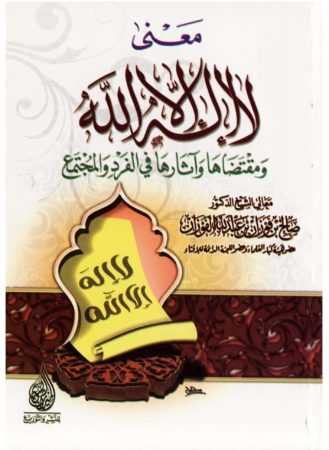‘Abdullaah
Ibnul-Mubaarak رحمه
الله said:
“I
came to Makkah while it had been stricken by drought and the people were
praying Istisqaa (prayer for rain) in Masjid Al-Haraam. I was by the gate of
Banee Shaybah, when I saw a young black boy who was wearing two pieces of
burlap (a thick cloth usually used to make sacks), one piece wrapped around his
waist and the other tossed over his shoulder. He stood at a secluded place next
to me and I heard him say, “My Lord, the faces are worn due to their sins and
the evil of their deeds, and you have prevented us from rain to discipline the
creation, I ask you O patient and forbearing One, You who His slaves know
nothing of Him except that which is beautiful, give them rain, in this moment,
in this moment.””
Ibnul-Mubaarak
said, “He continued to say, “In this moment” until the sky became filled with
clouds, and the rain descended from every direction, and he sat in his place
making tasbeeh, and I began to cry.
When
he left I followed him to find out where he lives. After that, I went to
Fudhayl Ibn 'Iyaadh who said to me, “Why do you look so depressed?”
I
said to him, “Someone beat us to Allaah, and so He took him as an intimate
companion other than us.”
He
said, “How so?”
So
I told him the story, and he cried out “Woe be to you, O Ibnul-Mubaarak!
Take me to him!”
I
said, “There’s no time at the moment, I’ll find out more about him.”
So
the next morning I prayed Fajr and I went to his residence and there was an old
man sitting at the door. When he saw me he recognized me and said, “Welcome,
O Aboo 'Abdir-Rahmaan. What do you need?”
I
said, “I am in need of a black boy.”
He
said, “I have many”, and so he cried out “Boy!” and a strong
young man emerged, and he said, “You’ll have a good result with this one. He
would be good for you.”
I
said, “I have no need for him”.
So
he continued to bring out boy after boy, until I saw the boy that I recognized,
so when I saw him my eyes teared. He said, “Is this the one?”






